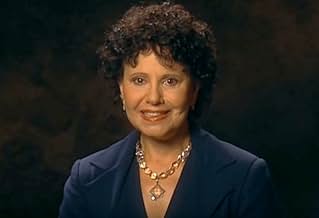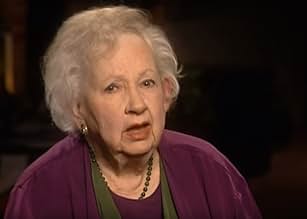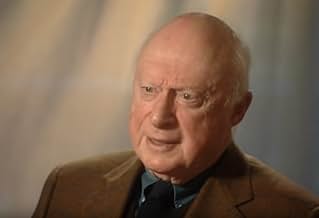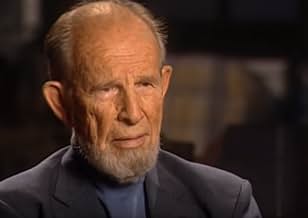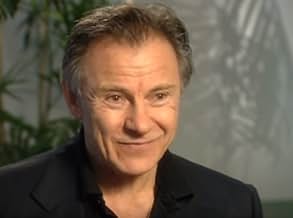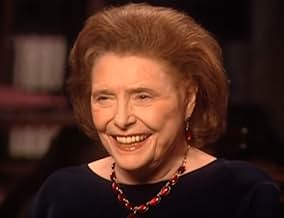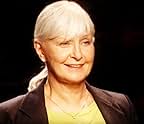Agrega una trama en tu idiomaThis documentary, aired on the Turner Classic Movies (TCM) cable network, looks at the life and career of John Garfield, whose career was cut short when he died at age 39. His difficult chil... Leer todoThis documentary, aired on the Turner Classic Movies (TCM) cable network, looks at the life and career of John Garfield, whose career was cut short when he died at age 39. His difficult childhood in the rough neighborhoods of New York City provided the perfect background for the ... Leer todoThis documentary, aired on the Turner Classic Movies (TCM) cable network, looks at the life and career of John Garfield, whose career was cut short when he died at age 39. His difficult childhood in the rough neighborhoods of New York City provided the perfect background for the tough-guy roles he would play on both stage and screen.
- Self
- (as Joe Bernard)
- Self
- (material de archivo)
- Self
- (material de archivo)
- Dirección
- Guionistas
- Todo el elenco y el equipo
- Producción, taquilla y más en IMDbPro
Opiniones destacadas
This one-hour bio put the man's life in sharper focus for me. I didn't know he played a variety of character types or that he studied method acting and spent much of his career affiliated with NYC's theater company. These factual details helped clarify my perception, though they also reinforced my image of him as a tough guy.
The bio includes interviews with current film VIPs, and is narrated by his daughter. Not unexpectedly these people gush with flowery compliments and adulation for Garfield. Has there ever been a film bio that featured interviewers critical of the deceased? In "The John Garfield Story" the interview responses thus seem overly eulogistic. However much the anticommunist HUAC may have wrongly hounded Garfield, the Committee didn't "kill" Garfield as one interviewer says flat out.
Even so, though the film may be a standard celebrity bio, it is still an interesting story, because Garfield himself was an interesting man and a fine actor.
That's the way it was with Garfield: so natural and convincing was his rendering that the viewer completely forgot that it was a "performance," rather a real character being observed and experienced.
So successful were Garfield's "bad-boy" roles, that Warner Bros. kept him stuck there, to John's chagrin. On rare occasions he proved he could play other parts brilliantly, and the total body of his work is remarkable--particularly in so short at time.
To have died before the age of 40 was a serious loss to the profession, yet his legacy paved the way for the likes of Brando, DiNero, Pacino and Hoffman.
This original Turner Classic Movie production does justice to Garfield's work, and includes such thespian notables as Dreyfus, Woodward, Glover, and Cronyn paying tribute to one of their "heros."
Was he a great actor? He was always quite good, but he had his limitations. He was generally better in film noir than the great outdoors and often stronger in supporting roles than in leads. The film makes an argument that Warner's frequently misused him, but he was hardly unique in this regard. In any case, he did some of his best work there (e.g.,"Pride of the Marines") before free lancing in the late 40s.
Was he an activist? Yes, though not any more so than a number of people and probably less than some. His roots may have been in the Group Theater, but even there the real emphasis was on acting, not activism. The film doesn't spend too much time on this side of his life, which is just as well, though the leftist actors who are interviewed clearly warm to this theme and to the concept of his martyrdom.
For all the talk about HUAC and blacklisting (Joe Bernard states flatly "the Committee killed him"), Garfield's acting career was at most only half dead when he died at 39. He'd just been on Broadway in "Golden Boy" and surely could have made a good living on the stage, which was always his first love.
As for his film career, that was probably on the skids anyway by 1952. Noir and social realism were played out. Hollywood was entering a white bread era and Garfield's urban/ethnic grittiness didn't fit into a landscape dominated by Westerns, Biblical epics, Technicolor musicals, and romantic comedies. Had he lived he surely would have made a big comeback in the 60s and 70s. It's not hard to imagine him as Sol Nazerman or Hyman Roth, but it wasn't in the cards.
In his last film, titled ironically "He Ran All the Way", he was allowed very little running. Rheumatic fever in the early 30s had damaged his heart and there may have been congenital problems as well (his son died of a heart attack at 41). Very likely he had been dying for years.
Recommended primarily for Garfield's fans or for those completely unacquainted with his work. Others will find it little more than routine.
But to listen to this documentary, his Warner contract allowed him to do too many prison films. Actually, his street smart, chip-on-the-shoulder type of personality was what the public expected to see rather than having him stretch to be someone who could do a variety of other roles.
After all, those tough guy prison films were what kept him so popular with the movie-going public during all those years at Warners. When he did "stretch," the accents proved too much for him to handle (as in TORTILLA FLAT and JUAREZ) and costume films were not his forte. The Brooklyn in his voice was always just beneath the surface, as was his tough guy attitude. It was the dangerous element in his personality that women loved. Aside from the prison dramas, he got to do a number of respectable war films (DESTINATION TOKYO, PRIDE OF THE MARINES) and films of social significance like GENTLEMAN'S AGREEMENT.
Garfield's biggest disappointment was not getting a chance to do Clifford Odet's GOLDEN BOY on public and repeating that performance on film. However, he made up for it ten years later by starring in a B'way version, just a little too ripe for the role at that point. We get to see a glimpse of a TV scene from the play opposite Kim Stanley which at least gives an indication of how good his performance in that role probably was.
As for the celebrities who talk about Garfield, that's the weakest part of the documentary. There's nothing particularly illuminating in any of the comments by Lee Grant, Joanne Woodward, Richard Dreyfuss, Norman Lloyd or any of the others who offer little insight into what made the man tick aside from his surface toughness as a result of a tough childhood in Brooklyn. Along the way he had help from someone at a school for troubled kids and developed an interest in the theater, soon a favorite with the Group Theater.
Garfield deserves a better bio than this, but it does offer some generous film clips from a few of his best films and should please fans who want to know more about his emergence as a star.
¿Sabías que…?
- TriviaIncluded in Warner Home Video's 2004 DVD release of El cartero llama dos veces (1946).
- ErroresIn her opening narration of this documentary, Julie Garfield refers to "Senator Joseph McCarthy and his House Un-American Activities Committee". As a senator (and someone who had never been a member of the House of Representatives), McCarthy did not serve and could never have served on HUAC. Indeed, Ms. Garfield's very words make no sense, as senators cannot be members of House committees (or vice versa). Moreover, McCarthy had nothing whatsoever to do with the investigations into alleged Communist influence in Hollywood or the subsequent blacklist. McCarthy, in the Senate, concerned himself almost entirely with alleged subversives in government and related institutions, but he never got involved with Hollywood or the entertainment industry, which was the exclusive preserve of HUAC - 'though McCarthy certainly approved of what that committee was doing.
- Créditos curiososAs the credits roll on the right side of the screen, the left side shows unidentified film clips from Garfield's movies while the interviewees make additional comments. The final frame shows Garfield's star on the Hollywood Walk of Fame.
- ConexionesFeatures Las deliciosas (1933)
Selecciones populares
Detalles
- Tiempo de ejecución58 minutos
- Color
- Mezcla de sonido
- Relación de aspecto
- 1.33 : 1

